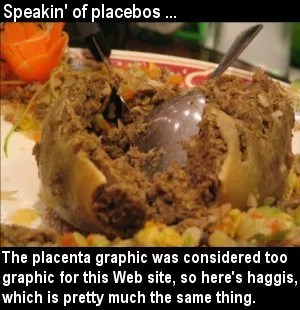Researchers have long believed that amyloid plaques either cause Alzheimer’s or are a key factor, and a lot of money has gone into researching drugs that reduce the prevalence of these plaques. So it’s a great cause for celebration that bapineuzumab, a drug now being developed by Elan Corp. and now owned by Johnson & Johnson, showed an ability to reduce amyloid plaques in 28 patients. At the end of the 18-month study period, the patients had 25 percent less amyloid plaques than a control group. And the bapineuzumab patients actually had less plaques than they had at the start of testing.
But like most all good things, there’s a bit of a catch. Actually, there are two catches here. The first is that bapineuzumab can have dangerous side effects — high doses can have ill effects, as earlier tests found, and two patients in the current study had cerebral edemas caused by water on the brain. But it sounds like the side-effects are manageable, and it may be just a matter of finding the right dosage.
The bigger catch is, we still don’t know if amyloid plaques are a cause or merely a symptom of Alzheimer’s disease. A large and growing number of researchers believe the true cause of Alzheimer’s is the tangles of tau proteins that also accumulate in the brains of Alzheimer’s sufferers.
In any case, whether bapineuzumab turns out to be a wonder drug, or a dead end, the real breakthrough here is the development of a method of assessing a patient’s number of amyloid plaques, something we could only do after death, via autopsy, until now. Now, we can only hope that we don’t need to repeat the same research multiple times over.

 A mother dog eats the placenta, which is part of the sac that fetuses live inside of while in their mother’s stomach.
A mother dog eats the placenta, which is part of the sac that fetuses live inside of while in their mother’s stomach.